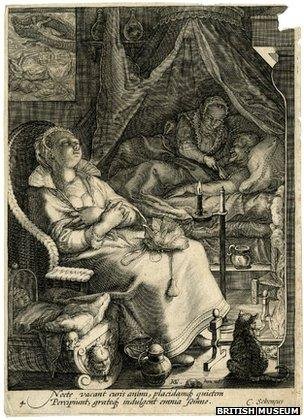Sleeping Through a Pandemic
How are you sleeping these days?
I imagine for many of you not so well. Our schedules and routines have been upended as we no longer need to go into the office or go pretty much anywhere. The morning rush hour for many replaced with quickly fixing our hair before jumping into a video meeting 1 minute before it starts.
For the millions of newly unemployed, it must be an even greater challenge to maintain some semblance of a normal sleep schedule. They face such uncertainty that we can't we really blame them for sleeping whenever they damn well please. Along with starting each day with a collective sigh as they say to themselves "What's the point really?".
Regardless of your employment situation all of us are subject to the never-ending onslaught of bad news. This can easily be found with every 'pull to refresh' of our trusty phones. With each screen refresh, our bodies and minds ironically feel much less fresh! Shout out to my fellow insomniacs browsing all those exponential viral spread charts late into the night. It's most certainly not helping, but I also don't fault you for doing it because, well, I'm doing the same. Let's face it we're addicted to 'panic porn' and the media is feeding that addiction every hour of the day.
With all the various stresses and uncertainty of today, you may find yourself no longer sleeping through the night and enjoying the usual 7 or 8 hours of uninterrupted sleep. If you're like me, you're also probably taking *a lot* more naps to make up for the lost hours and as a result breaking up your sleep into two shifts. If you find yourself in this same situation don't blame it entirely on the pandemic however, you can also thank some of your pre-Industrial Revolution ancestors as well.
You see before the pandemic of today and even the pandemics of yore, this was a more typical sleeping pattern. It has a few names such as biphasic or polyphasic sleep but I prefer the more quant name commonly used in the literature of the day, having a first and second sleep.
The definitive record of this time in human sleeping patterns is A. Roger Ekirch's At Day's Close: Night in Times Past. He found and cataloged over 500 references to these sleep patterns and was able to summarize some of the key learnings on why people slept this way.
Just like in behavior changes of today technology was a major driver here. In a time before street lights and artificial illumination, there wasn't much night time activity. So the night was instead owned by the less desirables of the day. The criminals, the drunks, the vandals, and the ladies of the night. Basically all the fun people.
However, if you weren't one of those people you were safely at home. With a lack of things to do after supper and with a full belly, it must have been rather easy to doze off for a few hours. This usually took place from dusk until sometime around midnight. Your first sleep.
Of course, today it is not a bright street corner influencing our sleep patterns but instead our bright palms. Illuminated by our phones and the endless deep well of things to look at that is the Internet. If you find yourself awake in the middle of the night you likely reach for the phone out of habit. Passing the time with a few scrolls which turn into a lot of scrolls and before you know it a few hours has passed.
Back in the day however this time was a little more productive. It was known as the 'waking period' and people did many things such as reading, prayer, smoking tobacco, and even visited with neighbors. Or they just enjoyed the stillness of the night to reflect on their first sleep dreams and life in general.
They also had a lot of sex.
Doctors of the time recommend using this period for such activities. Claiming it could be effective for better procreation. Even going as far as to say that sex during the waking period was more enjoyable. If you have ever woke your partner up in the middle night for a little tickle tickle perhaps you can agree. There's certainly something to making love while you're half asleep and in a more lucid state. Give it a try sometime, doctor's orders! ;)

A wood engraving from Jan Saenredam in 1595 showing the waking period
Now let's take your mind out of the gutter and back to the street corner. Things started to change with the advent of street lights. By 1700 most major European cities had them and it became fashionable to go out at night. It was then considered a waste of time to spend so much time in bed and thus the beginning of the end of the biphasic sleep pattern.
However, fast forward to today and along with this pandemic, I'm finding myself reverting back to such a sleep pattern. I'm curious if I'm the only one?
With nothing to do, and really nowhere to go at night, I'm often taking my first sleep around 5 or 6 pm in the form of a nice long nap. I just don't sleep as late into the night for a first sleep as my pre-industrial brethren. Although thanks to this nap I'm finding myself up pretty late until around 2 am or so before finally jumping into my longer second sleep. I still awake at a respectable early morning time and I feel just as refreshed as I did when sleeping for 8 hours in a single stretch.
So for those of you rediscovering this long lost waking period I hope you're able to do something productive with it. I might even take my own advice. That is of course if I could only manage to put down my damn phone.